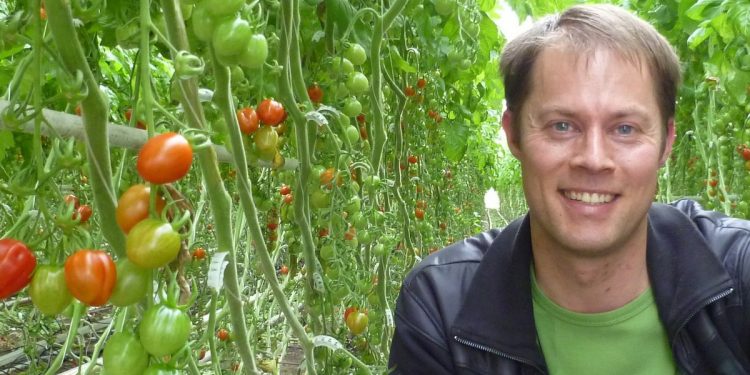In recent years, the organic greenhouse vegetable sector has experienced a notable shift, marked by a decline in the number of players and a stagnant demand. Krist Hamerlinck, representing Belgian organic growing company Eco Veg, attributes this trend to various factors impacting the industry. “Although there are fewer players, demand in the organic sector remains stagnant,” he explains, highlighting a stark contrast to the peak demand observed during the pandemic when health-conscious consumers drove a surge in organic product sales. Post-pandemic economic uncertainties, compounded by the energy crisis, have moderated consumer spending habits, influencing market dynamics unfavorably.
The spring of this year presented additional challenges for Belgian organic greenhouse vegetable producers, characterized by an unusual lack of sunlight. According to Krist, this weather pattern significantly delayed production schedules compared to previous years. “We had almost no sun until mid-June. This delayed productions because optimal growth requires adequate sunlight,” he notes.
Eco Veg specializes in packaging and marketing organic greenhouse vegetables cultivated across approximately 11 hectares. Despite efforts to maintain production levels, the season has been challenging. “Cucumbers and eggplants, being more sensitive to light, have been particularly affected,” Krist elaborates. While tomato production has caught up to last year’s levels on a weekly basis, overall production volumes lag behind due to the prolonged adverse weather conditions. Bell peppers have shown the least deviation, yet growth rates remain below expectations. Consequently, reduced supply has led to higher market prices, although these increases have not fully offset production losses and rising operational costs.
Reflecting on the current market conditions, Hamerlinck acknowledges the tough year organic greenhouse vegetables are facing. “While reduced competition has eased sales to some extent, ongoing production challenges prevent us from characterizing this as a successful year,” he admits.
In response to these difficulties, Eco Veg is diversifying its product offerings, exploring alternatives like raspberries grown under glass. However, challenges persist, including disease outbreaks exacerbated by humid weather conditions. Leafy crops such as lettuce and spinach are also being considered due to their favorable market reception during winter months. “We cease cucumber production earlier, around October, due to competition from Spain. Shifting focus to leafy crops allows us to optimize resources,” Krist explains.
To sustain sales momentum, Eco Veg is actively seeking partnerships and establishing reliable supply programs. “While Scandinavia remains a key market, leafy greens may not command the same export value. We are exploring opportunities closer to home in the Netherlands and Belgium,” Krist emphasizes. In an era of uncertainty, entrepreneurial resilience and strategic adaptation are crucial for navigating the complexities of the organic greenhouse vegetable industry.










